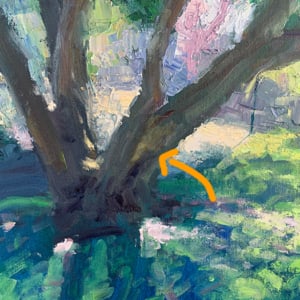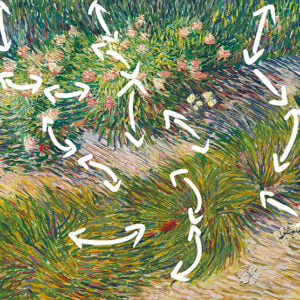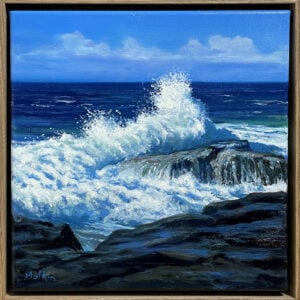Imprimatura is an initial stain of color on the canvas in oil painting. This is different from a colored ground in that the stain is generally translucent in imprimatura.
Imprimatura is commonly used when painting alla prima (or wet on wet) and was practiced by many of the great masters such as John Singer Sargent.
The purpose of imprimatura is merely to cover the canvas in a more neutral tone (the bare white canvas can be difficult to paint on as your sense of tones and value may be skewed). It also avoids any glaring white being exposed at the end of the painting.
Also, as everything is dark until hit with light, it makes sense to darken your canvas. This makes hitting the darkest darks in your painting much easier to achieve.
Some of the most common colors used for this are raw umber or burnt sienna, but you can use whatever you like. In general, though I would not use a tone that is too strong or vibrant. I personally use raw umber or yellow ochre depending on what I am painting.
It is important when using the imprimatura technique to only use a thin wash of paint. This is not the stage to start building up high levels of paint on the canvas.
Imprimatura is different from underpainting in that there is no drawing or developing the composition.
Want to Learn More?
You might be interested in my Painting Academy course. I’ll walk you through the time-tested fundamentals of painting. It’s perfect for absolute beginner to intermediate painters.
Thanks for Reading!
I appreciate you taking the time to read this post and I hope you found it helpful. Feel free to share it with friends.
Happy painting!
Dan Scott

Draw Paint Academy






